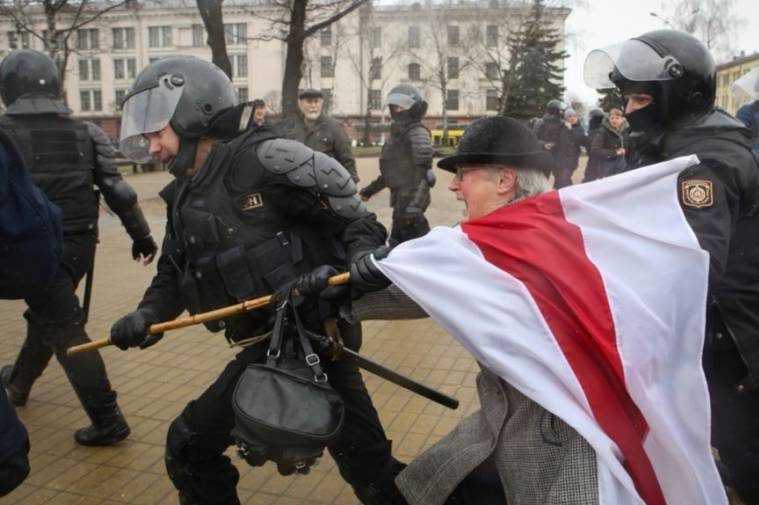
Mar 15, 2021 | Advocacy, Non-legal submissions
Today, the ICJ joined IBAHRI, Human Rights House Foundation and the OMCT in a statement before the UN Human Rights Council condemning human rights violations against lawyers in the country.
The joint statement delivered during the debate on the outcome of the UPR of Belarus reads as follows:
“The IBAHRI, the International Commission of Jurists, the Human Rights House Foundation and the OMCT would like to echo concerns that have been raised during the UPR review and are reflected in the UPR outcome document.
We strongly condemn the numerous, widespread human rights violations committed in the aftermath of the 2020 Belarus Presidential election, in particular:
- First – The disproportionate use of force by security forces against peaceful protestors, the arbitrary arrest and detention of thousands of people, systematic torture and ill-treatment following arrest or during detention, reports of enforced disappearances and denied access to a lawyer.
- Second – The systematic control of the executive over the judiciary and the court system. The judiciary continues to selectively use legislation to intimidate dissenting voices and tightly controls the licensing and activities of lawyers working under threat of being targeted.
- Third – The Illegal and arbitrary restrictions to fundamental rights and freedoms, including the right to peaceful assembly, free expression and access to information. From violent targeting of journalists and the media, to state sanctioned internet shutdowns resulting in censorship.
Therefore, we urge Belarus to:
- Immediately and unconditionally release all individuals arbitrarily detained and stop any practices of torture and ill-treatment of detainees;
- Undertake impartial, independent, effective and prompt investigations into allegations of human rights abuses;
- Bring perpetrators to justice, ensuring effective remedy and reparation for victims;
- Allow professionals – including legal and media professionals – to conduct their work without fear of targeting;
- Ensure respect and practice for all human rights, including free expression, online and offline, providing unconstrained access to information for all; lastly
- Adopt all necessary measures to prevent further human rights violations, without delay.”
Contact:
Massimo Frigo, ICJ UN Representative, e: massimo.frigo(a)icj.org, t: +41797499949
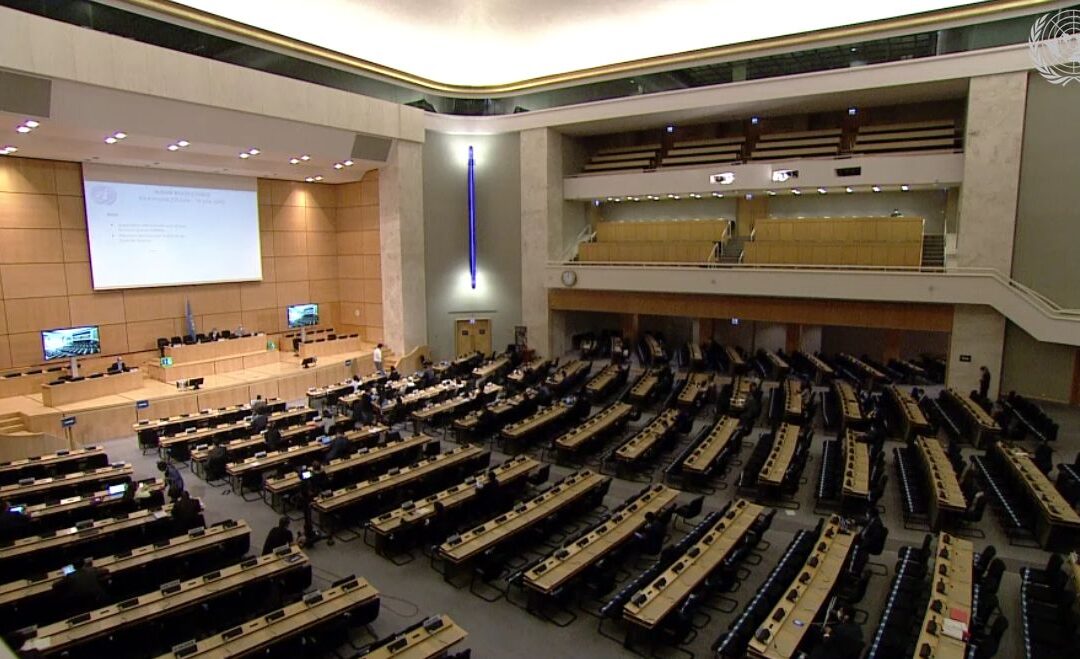
Mar 9, 2021 | Advocacy, Non-legal submissions
Today, the ICJ joined an oral statement at the UN Human Rights Council denouncing attacks on lawyers occurring in Iran.
The statement was delivered by IBAHRI on behalf also of ICJ, Lawyers for Lawyers, Lawyers’ Rights Watch Canada and The Law Society, during the interactive dialogue with the UN Special Rapporteur on the ISlamic Republic of Iran.
The statement reads as follows:
“The International Bar Association’s Human Rights Institute (the IBAHRI), the International Commission of Jurists (the ICJ), Lawyers for Lawyers, Lawyers’ Rights Watch Canada, and The Law Society express deep concerns at the arbitrary arrests and detention of lawyers and others sentenced to exorbitant prison terms for legitimately carrying out their professional activities. We draw special attention to the cases of lawyers Nasrin Sotoudeh and Amirsalar Davoodi, who remain imprisoned and were excluded from Covid-19 prisoner release programmes.
Their imprisonment means that access to justice for citizens in Iran is restricted. We are alarmed by the widespread violation of fair trial guarantees, including the denial of access to a lawyer of one’s own choosing, as well as the recent application of the death penalty in Iran. We also condemn Iran’s non-compliance with international standards on conditions of detention and reports of torture of those critical of the regime.
We urge the Iranian authorities to:
- Immediately and unconditionally release Nasrin Sotoudeh, Amirsalar Davoodi and other lawyers who remain in prison after conviction in an unfair trial;
- Pending release, ensure compliance with international standards on conditions of detention;
- Ensure that lawyers and others can carry out their profession free from undue interference, including judicial harassment;
- Establish an immediate moratorium on the death penalty, pending abolishment; and
- Comply with its international legal obligations in respecting, guaranteeing, and protecting human rights.”
Find the statement here: Iran-UN-JointStatement-Lawyers-Advocacy-NonLegal-HRC46-2021-ENG
Contact:
Massimo Frigo, ICJ UN Representative, e: massimo.frigo(a)icj.org, t: +41797499949
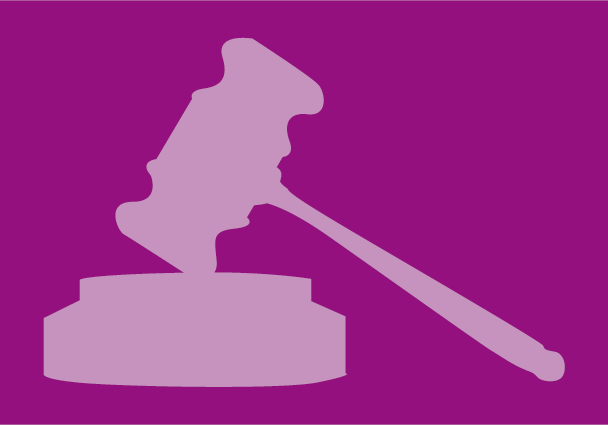
Mar 5, 2021 | Advocacy, Non-legal submissions
The ICJ issued a statement today on the occasion of an interactive dialogue with the UN Special Rapporteur on situation of human rights defenders calling for measures of protection for lawyers who defend human rights and human rights defenders.
The ICJ was not able to read the statement during the interactive dialogue due to the limited time provided for NGO statements.
The statement was as follows:
“Madame President,
The International Commission of Jurists (ICJ) welcomes the Special Rapporteur’s report and agrees with her observation on the absence of political will in some States to protect Human Rights Defenders (HRDs).
As noted by the previous Special Rapporteur (A/HRC/37/51/Add.1), lawyers are HRDs when they act in their professional capacity to promote or protect human rights. Lawyers, like other defenders, are often targeted for harassment including through death threats and killings. The ICJ has recently documented such cases in Zimbabwe, Egypt and Ukraine.
The ICJ recalls that under the UN Basic Principles on the Role of Lawyers, States have special protective responsibilities, namely that “[w]here the security of lawyers is threatened as a result of discharging their functions, they shall be adequately safeguarded by the authorities.”
The ICJ welcomes the Special Rapporteur’s recommendation that the international community, particularly States through Foreign Embassies and the OHCHR must react faster in addressing threats issued against HRDs. This should include situations where lawyers are threatened for doing their work.
The ICJ further welcomes the recommendation to maintain adequately resourced protection mechanisms for HRDs. In this regard, we consider strong and independent Bar Associations to be essential in helping protect the security of lawyers.
Madam Special Rapporteur, are there particular measures you would recommend for protecting lawyers when acting as HRDs?
Thank you.”
Contact:
Massimo Frigo, ICJ UN Representative, e: massimo.frigo(a)icj.org, t: +41797499949
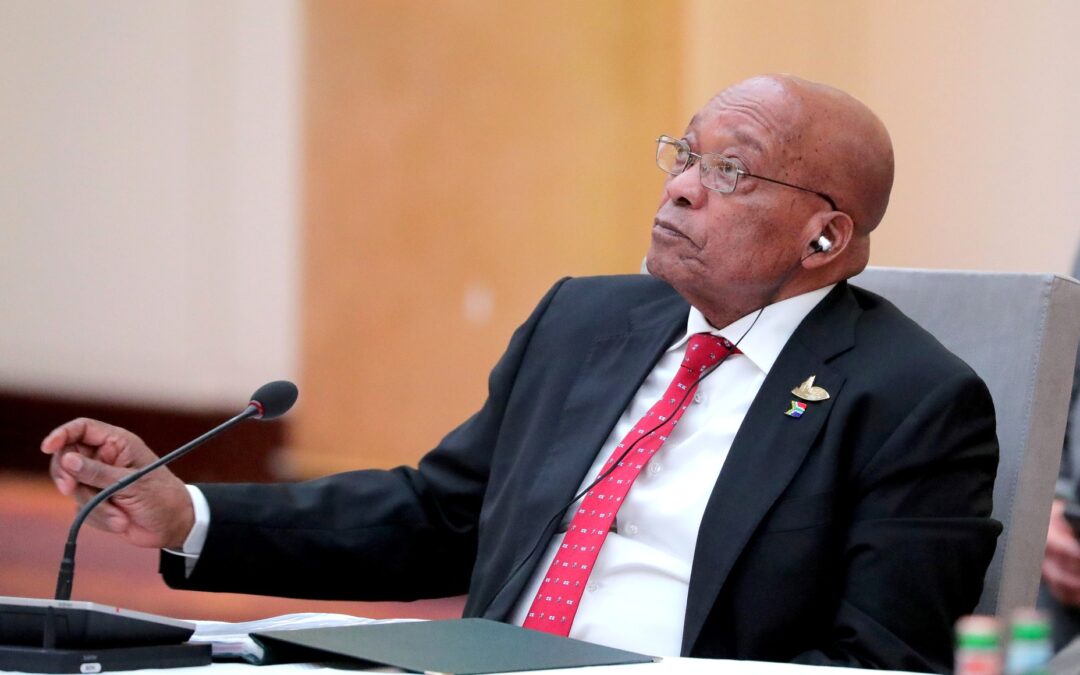
Feb 17, 2021 | News
On 17 February 2021, the International Commission of Jurists condemned former South African President Jacob Zuma’s refusal to abide by an order of the Constitutional Court to appear before a commission investigating allegations of corruption during his tenure.
As a former President, Mr Zuma must be regarded as a private citizen and is subject to the same laws as all other private citizens. If found to have committed an offence he must face the required penalties.
ICJ’s Africa Director, Kaajal Ramjathan-Keogh said,
“Zuma’s failure to follow the decision of the Constitutional Court and to refuse the summons of a proper judicial commission disrespects the rule of law and erodes public confidence in the administration of justice.”
She added that,
“Zuma is facing credible allegations of engaging in corruption and misconduct that demand to be investigated properly. His conduct in rejecting to appear before the investigative commission is an afront to the rule of law and the administration of justice and is unbecoming of a former President who took an oath to uphold the Constitution.”
Zuma has refused to appear before the Judicial Commission of Inquiry into Allegations of State Capture, Corruption and Fraud in the Public Sector including Organs of State, despite being called to testify, since November 2020. He appeared before the Commission in July 2019 but refused to answer certain questions and effectively withdrew his participation.
On 28th January 2021, the South African Constitutional Court held that Zuma was obliged to attend and participate in the Judicial Commission’s proceedings and could not claim a right to remain silent in order to avoid doing so, though he retained a privilege against self-incrimination. Rejecting this ruling, Zuma refused a summons to appear before the Commission as a witness and instead issued a statement on 15th February accusing the Commission Chair of “propagating political propaganda” against him. He further accuses the Commission Chair of “misleading the nation” and of “not following due process to the prejudice of himself and his family”. The statement also accuses the Commission of “being unable to conduct an independent, fair, and impartial investigation into state capture”. Zuma’s statement also lambasts the South African judiciary, alleging without evidence that many judges, including specific named judges are “captured” and have over years been conspiring against him.
Ramjathan-Keogh added,
“Zuma’s groundless attacks on the South African judiciary are an affront to the court’s standing and weaken the principle of the judiciary as an independent and equal branch of government with the responsibility to investigate the actions of a president, or in this case, ex-president.”
The ICJ pointed out that a witness’s failure to appear before the Judicial Commission could constitute an offence under section 6 of the Commissions Act. A witnesses’ failure to attend an inquiry or to remain in attendance until its conclusion could mean that they would be guilty of an offence, the penalty for which is imprisonment or a fine or both.
Contact:
Kaajal Ramjathan-Keogh, Africa Director, Kaajal.Keogh@icj.org, +27845148039
Tanveer Jeewa, Legal and Communications Consultant, Tanveer.Jeewa@icj.org
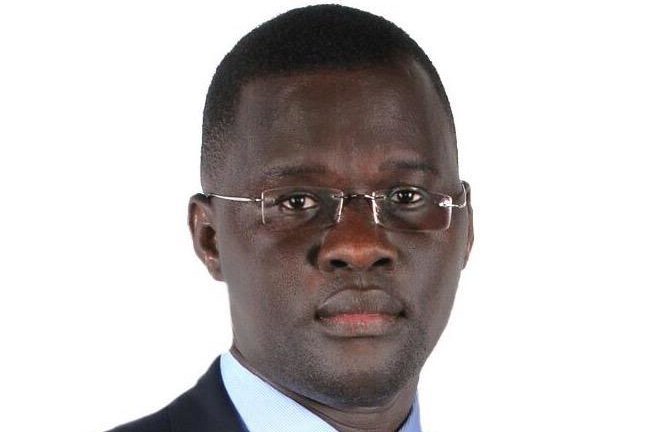
Jan 26, 2021 | News
Lawyers for Lawyers (L4L) and the ICJ condemn the spurious charges under the Anti-Money Laundering brought against Ugandan lawyer and human rights defender Nicholas Opiyo and call for them to be dropped.
The organizations consider that this action stands to impede work of lawyers in the country of carrying out their professional functions, particularly regarding human rights work.
There do not appear to be legitimate grounds for these charges or the ongoing prosecution. The organizations are further concerned at numerous alleged violations surrounding the arrest, detention and pre-trial proceedings.
Nicholas Opiyo, Executive Director of Chapter Four Uganda, a civil rights charity working to defend human rights and civil liberties, was arbitrarily arrested on 22 December 2020, not informed of the reason for his arrest and effectively held in incommunicado detention for a prolonged period.
On 22 December 2020, plain clothed law enforcement officers who did not identify themselves seized Mr. Opiyo from a restaurant, along with four other individuals, including three lawyers.
He was later charged under section 3 (c) of the Anti-Money Laundering Act on allegations that he acquired USD 340,000 through the bank account of Chapter Four Uganda, knowing that “the said funds were proceeds of crime”.
Chapter Four Uganda have confirmed that these are legitimate donor funds for lawful purposes.
Sophie de Graaf, the Director of Lawyers for Lawyers, said:
“Lawyers play a vital role in the protection of the rule of law and human rights. It is the responsibility of lawyers to protect and establish the rights of citizens from whatever quarter they may be threatened. Their work is indispensable for ensuring effective access to justice for all. To fulfil their professional duties effectively, lawyers should be able to practice law freely and independently, without any fear of reprisal.”
Kaajal Ramjathan-Keogh, ICJ’s Africa Director, added:
“Uganda is required under its Constitution and under its international legal obligations, to respect and protect the independence of lawyers. These baseless charges seek to intimidate and harass Mr. Opiyo and interfere with his work as a lawyer”.
Lawyers for Lawyers and the ICJ call on the Ugandan authorities to drop the spurious charges against Mr. Opiyo and to ensure that his rights to due process and fair trial are fully respected.
The organizations emphasize that the responsibilities authorities must comply with Uganda’s international legal obligations to ensure that members of the legal profession can carry out their professional functions without harassment and improper interference, including arbitrary arrest and incommunicado detention.
Background
Article 23 of Uganda’s Constitution stipulates that suspects under detention should be brought before a court of law within 48 hours from the time of arrest. Article 27 of Uganda’s Constitution requires that a person charged with a criminal offence should be informed immediately of the charges against them. Article 28 of the Ugandan Constitution guarantees for every person the right to a fair hearing and the right to legal representation. These rights are protected under the International Covenant on Civil and Political Rights and the African Charter on Human and Peoples Rights, to which Uganda is a party.
International and regional standards on ensuring the independence of lawyers are set out in the UN Basic Principles on the Role of Lawyers (UN Basic Principles) and the Principles and Guidelines on the Right to a Fair Trial and Legal Assistance in Africa.
Contact:
Kaajal Ramjathan-Keogh, ICJ Africa Director Kaajal.Keogh(a)icj.org +27 84 5148039
Tanveer Jeewa, Media and Legal Consultant Tanveer.Jeewa(a)icj.org









